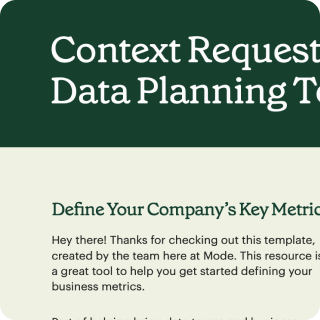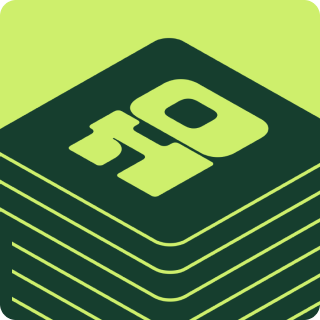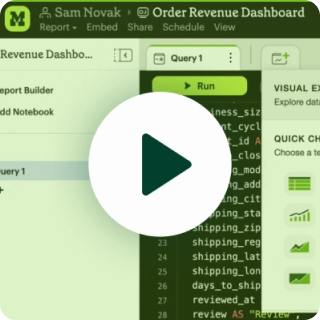At Mode, we believe everyone is analytical. Any time you look for patterns in previous experiences, or make a tradeoff between one option and another, you're analyzing. The need for analytical skills in the workforce is at an all-time high, and growing. So when we improve our analytical skills, we improve our prospects in the world.
The best way to improve your analytical skills is to apply them toward a problem you care about. Many of our colleagues here at Mode, even those for whom data analysis is not a core part of their role, have done exactly that. By exploring analysis for their own problems, they’ve earned skills that make huge improvements in their daily process.
In this blog series, How We Learn Analytical Skills on the Job, we'll take a look at how three of our colleagues here earned themselves a new skillset. We’ve already spoken to Alexa Guerra, Senior Manager of Demand Generation, about how she learned SQL by building a new reporting infrastructure for the marketing team. Today, we’ll talk product.
Brian Libicki, Product Manager
Getting Acquainted
Brian Libicki came to Mode with a decade of experience in product management, a decade in which the role of a product manager changed significantly.
“In the first half of my career, you'd have to work with BI teams when you needed data. You'd write a spec for a report, hand it off to them, and then you'd hear back maybe days or weeks later,” Libicki said. “It was a major dependency.”
But then a shift began in the industry. An expectation permeated the industry that PMs would themselves be data-savvy, and able to answer many questions on their own. This expectation grew out of the increasingly open data policies within organizations.
“I started to see more openness from IT departments to people other than analysts or developers interacting with the database. Cloud technology made it easier, and people started creating their own value from analysis, without having to go to a BI team,” Libicki said. “It became the new normal. So I started interacting with the database, writing queries, and usually failing to produce what I wanted. But I would take a practical, specific question to someone else in my organization who had the skills to answer,” Libicki said. “It helped to have a really supportive community around me.”
Getting His Hands Dirty
Libicki was inspired to join Mode in part because he wanted to help build tools that let everyone learn analytical skills and apply them in their own work. One of his first projects here was to lead the team building Mode's support for R, which introduced Brian to working with Notebooks.
“I needed to learn a new analytical language, R, but in learning about Notebooks I also learned about a whole new paradigm for analysis,” Libicki said. “It reinforced my desire to help people improve their own analytical skills.”
Libicki conducted extensive research of his own to inform the R project.
“I worked in Jupyter, as well as Google's Notebook environment, and R Studio. I also sought out and interviewed a lot of existing Mode customers,” Libicki said. “A big priority for me was learning what sets Notebooks apart from SQL, which situations calls for those particular tools.”
Applying the Skills
One particularly compelling feature of Notebooks, for Libicki, was the different data preparation workflow they enable.
“Some things that take hours and dozens of lines of code in SQL can be done much more simply in Python and R,” Libicki said. “This drove me to prioritize product features that show users how to replace less efficient practices by using targeted functions in Python or R.”
Libicki is not quite at the level where he can write Python or R with a fluency that can replace his use of SQL, but he's working on it.
“As part of my own quest to bridge the gap in my knowledge, I'm trying to push the Mode product to help bridge a user's understanding as well,” Libicki said. He has a list of analytical questions he wants to pursue through work on the product in order to improve his own analytical prowess.
“I'd like to figure out whether, based on what we know about a user entering the product, we can surface different features first, and make them more immediately successful,” Libicki said. “Should we quickly get someone into the visualization features using simple SQL, or push them into deeper analytical functions with Notebooks? I'd like to do a better job of identifying user personas quickly, so we can show them features within the product that will help them faster.”
Libicki has worked to make products more valuable for their users for over a decade now, and thanks to his own work improving his analytical skillset, he's learning to ask even better questions and find his own answers.
Are you looking for a way to bring deeper analysis into your own role? Try exploring Mode's SQL School and Python tutorials.






